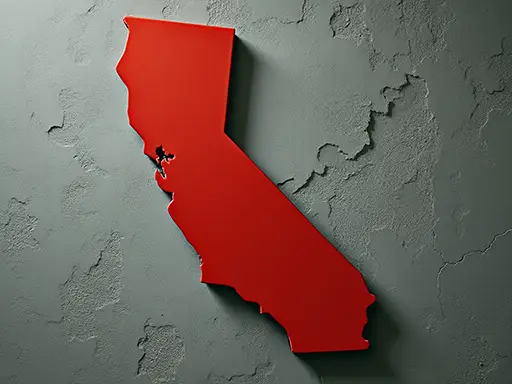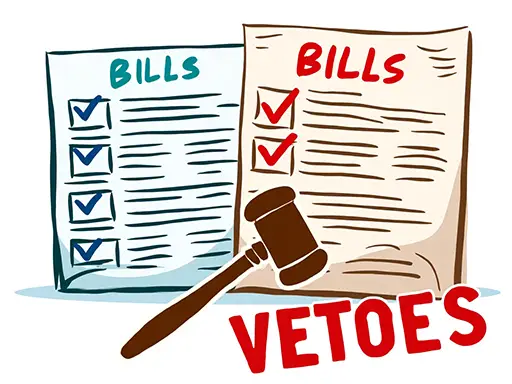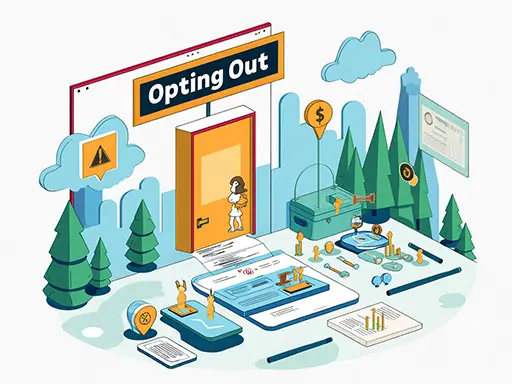What’s Next for Consumer Privacy?
California’s veto of a key privacy bill raises concerns about the future of data protection, but users can take control with tools like Incognito Browser.
- California’s attempt to mandate universal data privacy opt-outs has been vetoed.
- Consumers struggle to find easy ways to protect their data, but privacy-focused solutions like Incognito Browser provide a viable alternative.
- What does this mean for the future of privacy legislation, and how can users stay protected?
The recent decision by California Governor Gavin Newsom to veto a bill requiring universal data privacy opt-outs has left privacy advocates concerned. The bill, which would have mandated that browsers and operating systems provide users with an “opt-out preference signal,” faced significant opposition from tech giants. Companies like Google and Apple argued that such regulations could interfere with how platforms function. However, for everyday users, this veto represents another missed opportunity for enhanced privacy protections.

With tech companies increasingly pushing back against regulations, many consumers are left wondering how to safeguard their personal data online. This is where solutions like the Incognito Browser come into play. Designed for Android, this app helps users control their online presence by blocking trackers and keeping their digital footprint minimal. It’s a powerful tool for anyone concerned about privacy in a world where data collection is the norm.
Why the Bill’s Veto Matters
The vetoed legislation aimed to simplify privacy for users by providing a universal opt-out option. This would have made it easier for Californians to prevent businesses from collecting and sharing their personal data. Privacy advocates argue that universal opt-out rights are critical in the fight against behavioral advertising and other intrusive practices. However, as platforms like TikTok face scrutiny for their handling of user data, concerns grow. As covered in TikTok Under Fire Again, tech companies have consistently found themselves in hot water over privacy issues, often leaving consumers vulnerable.
Unfortunately, the tools currently available for opting out are cumbersome and not user-friendly. Users must rely on third-party browser extensions or navigate complex privacy settings. This is why apps like the Incognito Browser are essential—they offer simple, accessible solutions to control how your data is used without requiring users to jump through hoops.

A Look at Big Tech’s Resistance
The opposition to California’s bill came from some of the biggest names in the tech industry. Companies like Google and Apple argued that incorporating a mandated opt-out signal could impact the functionality of their platforms. Google, in particular, has been fiercely protective of its business model, which relies heavily on tracking user behavior for targeted advertising. According to Exposing Illinois Instagram Settlement, platforms often exploit loopholes in privacy laws to collect data for ad targeting, despite consumer protests.
For users, this means that personal data continues to be at risk, and opting out of tracking becomes increasingly difficult. Many consumers are unaware that even when they use private browsing or incognito mode on standard browsers, their data can still be collected. Incognito Browser addresses these concerns directly by offering a comprehensive privacy solution that goes beyond the default settings of traditional browsers.
Protecting Your Privacy in the Absence of Legislation

While legislation like California’s proposed bill could significantly shift the landscape of data privacy, individual users still have options for safeguarding their information. One of the most effective ways to do this is by utilizing privacy-focused browsers. With the Incognito Browser, users can enjoy a secure browsing experience that blocks ads, prevents tracking, and keeps browsing data private.
In addition to its ad-blocking capabilities, Incognito Browser also offers tools to prevent behavioral advertising, as discussed in Incognito Mode and Behavioral Advertising. This makes it an ideal choice for users looking to avoid personalized ads that target them based on their browsing history. It’s an essential tool in an era where digital footprints are often exploited for profit.
The Role of Digital Footprints in Data Collection
Even when users think they’re browsing privately, a passive footprint is often left behind. This includes information like IP addresses, cookies, and browsing history, which can be collected by websites and third-party trackers. Browsers like Incognito Browser help minimize this footprint by ensuring that no data is stored once the browsing session ends. For those who frequently shop or bank online, using a private browser for online banking or shopping is crucial for keeping sensitive information safe.

What’s Next for Privacy Legislation?
California’s veto represents just one chapter in the ongoing battle over privacy legislation. As noted in Privacy Legislation: Navigating the Regulatory Patchwork, states across the U.S. are grappling with how to best protect consumers while balancing the interests of large tech companies. However, without clear and enforceable regulations, users must take matters into their own hands by using privacy-focused tools.
As more users become aware of the importance of protecting their data, we may see a rise in the use of privacy apps like the Incognito Browser, which allow users to browse without worrying about who might be tracking them. Whether you’re concerned about behavioral advertising or safeguarding your personal data, using a private browsing tool is one of the simplest ways to take control of your online privacy.



